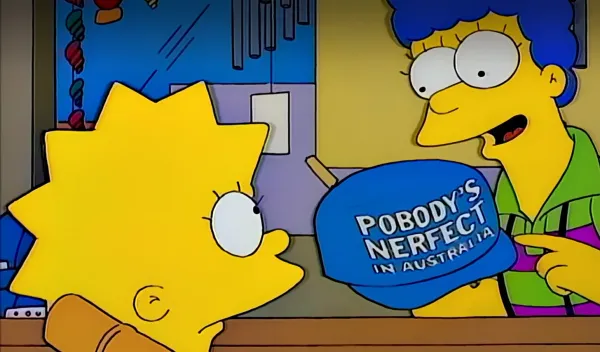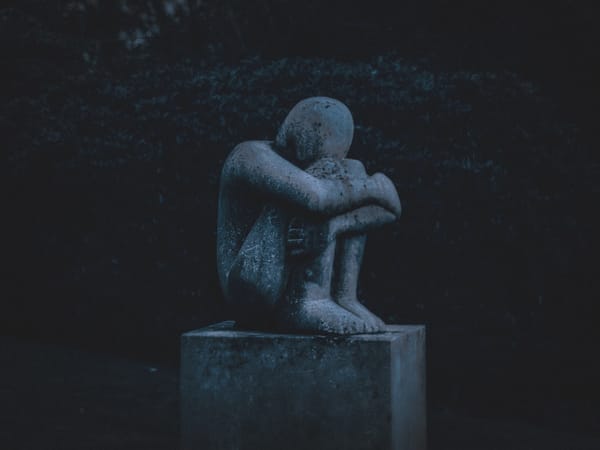La prima Volta
Cedric Bixler-Zavala and Omar Rodriguez-Lopez overcame more than their fair share of obstacles on their way to mainstream success with their new act, The Mars Volta.

It could've been simple for Cedric Bixler-Zavala and Omar Rodriguez-Lopez. Their fan base was loyal and, like any seminal band of the past decade, it reached its peak only after the breakup of At the Drive-In.
Oh, things could certainly have been easy. Bixler and Rodriguez knew the formula for success and it worked to a tee with their previous band. These El Paso boys had no intention of keeping things easy, though. Their music, like the story of their lives, was destined to remain in constant struggle and hardship to remain real.
When The Mars Volta formed, they didn't just take a step or two away from the At the Drive-In sound. They were too ambitious or stubborn to do so. They dug deep into their roots and what they pulled out was leaps and bounds away from where they started.
This approach to a new band may sound tedious and self-defeating to some. Depending on how you look at it, it may even be a bit reminiscent of Dostoevsky's Notes of the Underground. Nothing could be further from the truth for Bixler and Rodriguez though.
"Omar and I have always had an interest in writing music that sounded like this," began vocalist Cedric Bixler-Zavala. "It's an itch that we've needed to scratch for a long time. Actually, we've lied to the press about it for years, predicting this next big sound we would come out with, but each passing [At the Drive-In] record just sounded like In Casino/Out with better production."
The Mars Volta makes it a point to call their new Latin, salsa, and funk-influenced music progressive but they hesitate to define it as prog rock. They believe all music should be progressive and move the needle forward. That is the pivotal point upon which this band is built and it appears that the fans seem to be rather accepting of the influx of euphonious metamorphoses.
"It's been about three or four years already [since At the Drive-In broke up] and people seem to understand that it's a different band," continued Bixler. "We live in the savvy world of the Internet and online chat rooms. So people are usually pretty up to date with changes."
One change that most likely made fans enthusiastic was the addition of Flea to the lineup for the band's freshman offering, De-Loused in the Comatorium.
"[Flea] is a fan of the band and we needed someone at the last minute who could play the kind of style we wanted for the album," he said.
Not every change in the band has been positive, though. On May 25, band member Jeremy Ward was found dead. He was the band's sound manipulator, a member of Defacto, and a longtime friend of ATDI. While Bixler chose not to comment on how Ward died, he explained that it was hard for the band to deal with the loss.
"It was sad to lose Jeremy," he lamented. "As stereotypical as a 'rock band thing' it is to say, just playing shows is what helps us the most. It's a cathartic experience for us. There's no other way to deal with it."
One way that they have traditionally dealt with death is to write about it. The ATDI-penned song, "Embroglio," is a dedication to Julio Venegas, a close friend of the band that committed suicide. The Mars Volta felt that this wasn't enough of a tribute to Venegas, though. Therefore, they decided to dedicate De-Loused to him.
Venegas took his life in 1996 while ATDI was in the studio recording Acrobatic Tenement. His loss is something that they still deal with today.
"In short, the record was a gift from us to him," Bixler said. "He took his life six or so years ago and in the past we've only had small slices of cake to give him and we felt we needed to give him something bigger. So we put together a fictionalized story that utilizes bits and pieces from his life and, in our minds, he can be the only true critic of this album."
While no reasons were stated as to why Venegas chose to abruptly end his life, it appears that El Paso, often referred to as "Hell Paso," is a difficult place to grow up if you do not fit into their cultural archetype.
"El Paso is a really violent place to live," he said. "I moved out of there out of fear of getting beat up by everyday people. I'm glad my dad moved me out of the Bay Area when I was younger because living in El Paso cultured me but it's different now. When you grow up, you realize there are regular rednecks and Mexican rednecks."
El Paso, land of the intolerant, home of the bullies.
A five-minute walk from Bixler's childhood home will take you to a town where, as he put it, you can literally get away with murder. To know that such areas exist is a scary and eye-opening revelation.
The threat of forced assimilation or discrimination is a difficult prospect, but to live by a town where you fear for your own life on a regular basis must be a concept that is nearly impossible to come to terms with. Worse yet is to know that you do not have the support of your own people.
"It's hard to be Hispanic and not feel that you're accepted by your own people because of the way you dress, what you say, the way you speak, your sexual orientation, or anything like that," he fretted. "I think, if anything, that has always had an effect on the way I write lyrically. I don't promote violence but the lyrics will always have a violent feel to it because it's what I saw growing up."
In a bitter twist of irony, the people the band clash with on the street often show up at their shows.
"We used to get football face-painter fans at At the Drive-In shows who would think it was cute to come to the shows with Afro wigs on," he Bixler. "We'd spend half an hour before the shows pulling wigs off people and telling them to listen to the music. That was the downfall of bands like the Sex Pistols. People weren't listening to the music or the message. They were just dressing like the band."
Apparently, it's a hard-knock life for more than just Jay-Z and Shirley Temple.
Amid years of independent and commercial success, the message behind the music still gets lost in the fray, taking a back seat to superficiality. Bixler and Rodriguez’s look continues to cause them strife.
Their style is not intentionally fashionable. Their Afros grow naturally as the grueling weeks on a tour bus leave little time for self-care. Their slender, wiry frames are a result of being overworked and underfed.
“People think that it’s fun on tour, but it’s not,” said Bixler. “I don’t leave my hotel room. Maybe it’s karma for the way I was as a teenager, but you always seem to get some smart-ass wanting to fight you because you look different.”
Irie Jones, a central figure in Zadie Smith’s White Teeth, comes to mind. Her internal and external struggles were shaped by her cultural identity, and her Afro placed that ancestry on full display.
Unlike Bixler and Rodriguez, she sought to conform to Eurocentric norms, and believed straightening her hair was a step in the right direction. The chemicals she used damaged both her hair and her sense of self-worth.
In the end, she learned what The Mars Volta duo knew all along: it was her identity that made her strong.
This article was originally published in the Colorado Daily in 2003.





